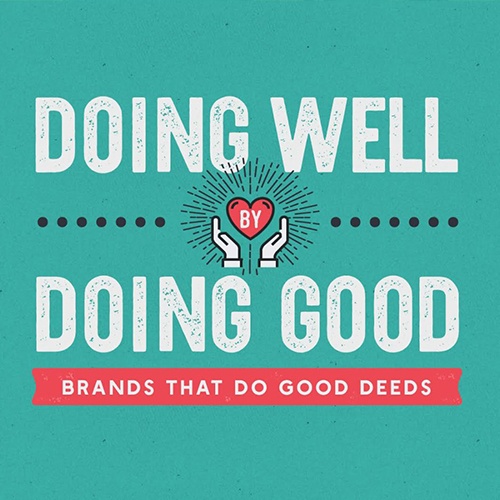
Thursday, 15th August, 2019
This article was originally posted on Media Post
A number of recent studies state that Millennials are more concerned about issues related to the environment, sustainability, and social justice than are their older siblings. As consumers, they are looking for brands that share the burden of social responsibility. A 2015 Forbes survey conducted with Elite Daily revealed that 75% of Millennial shoppers think it is very important that companies make a positive, societal contribution rather than profit alone.
As a response, an increasing number of brands are emerging with a do-gooder ethos. Millennials believe that brands, like themselves, can make money while making a meaningful difference. That said, there has been growing skepticism among Millennial shoppers of brands that “give back.”
Today, if a brand simply donates to charities, it is considered insufficient, made worse by bragging about it. Larger brands, whose established ethos is not inherently charitable, must be especially cautious. A 2013 University of California Riverside School of Business Administration and the London Business School Study found, “Companies that promote their corporate social responsibility are, in fact, more likely to become complacent and conduct themselves irresponsibly,” confirming Millennial suspicions.
Given these challenges, how do brands identify pro-social acts that align with their organizational values and create a stronger bond with Millennial consumers. Here are some examples of a few do-gooder models.
One-for-One Model
Brands like Toms, Warby Parker and Feed changed the landscape by prioritizing charitable contributions as a built-in, consistent element of their respective brand strategies. Toms’ one-for-one business strategy has had clear success (a Reuters report revealed the brand was valued at $625 million in 2014). Similarly, Feed, which facilitates 370 meals for school children in Kenya for every $250 spent on their burlap bags, reassures shoppers that their money is going toward a good cause. For every pair of Warby Parker glasses purchased, the $1.2 billion brand donates a pair to those in need in developing nations. To reinforce its commitment to charity, Warby Parker partners with nonprofit entities, which train locals in developing countries to give eye exams to those in need in their communities. Where companies can fail is when they don’t live up to their one-for-one commitments, causing a consumer backlash.
Local Community Model
Shinola, a Detroit-based watch brand, is among a new breed of company built with community in mind. Detroit, ranked the poorest city in the United States by the Census bureau with 39% of its residents living below the poverty line, has been in desperate need of employment opportunities for decades. Shinola prides itself on sourcing American-made materials, providing employment to Detroit residents, aiding local suppliers in expanding their existing operations and making an accessibly priced, handcrafted product. While this model is effective, not every company can give back to their local community.
Corporate Giving Model
Certainly, newer brands establishing their public identity and brand ethos have an opportunity to put their best foot forward. However, can larger, more established brands give back in a convincing way? The Tide brand is using mobile laundromats to provide free washes to displaced residents of natural disasters as they did with the recent spate of tornados in the South. This program aligns with their mission of caring for the clothes of American families.
Given present-day limitations, established brands can chart a way forward through small, genuine, incremental shifts toward walking the walk—from product manufacturing to packaging.
In order to connect with today’s highly discerning consumers and make meaningful change, we recommend that brands make an authentic, sustainable shift toward doing good for employees and communities, while getting involved in charities or giving opportunities that align with the business goals and brand DNA in a holistic way.
A creative agency dedicated to innovative brand-building.
You need to load content from reCAPTCHA to submit the form. Please note that doing so will share data with third-party providers.
More Information